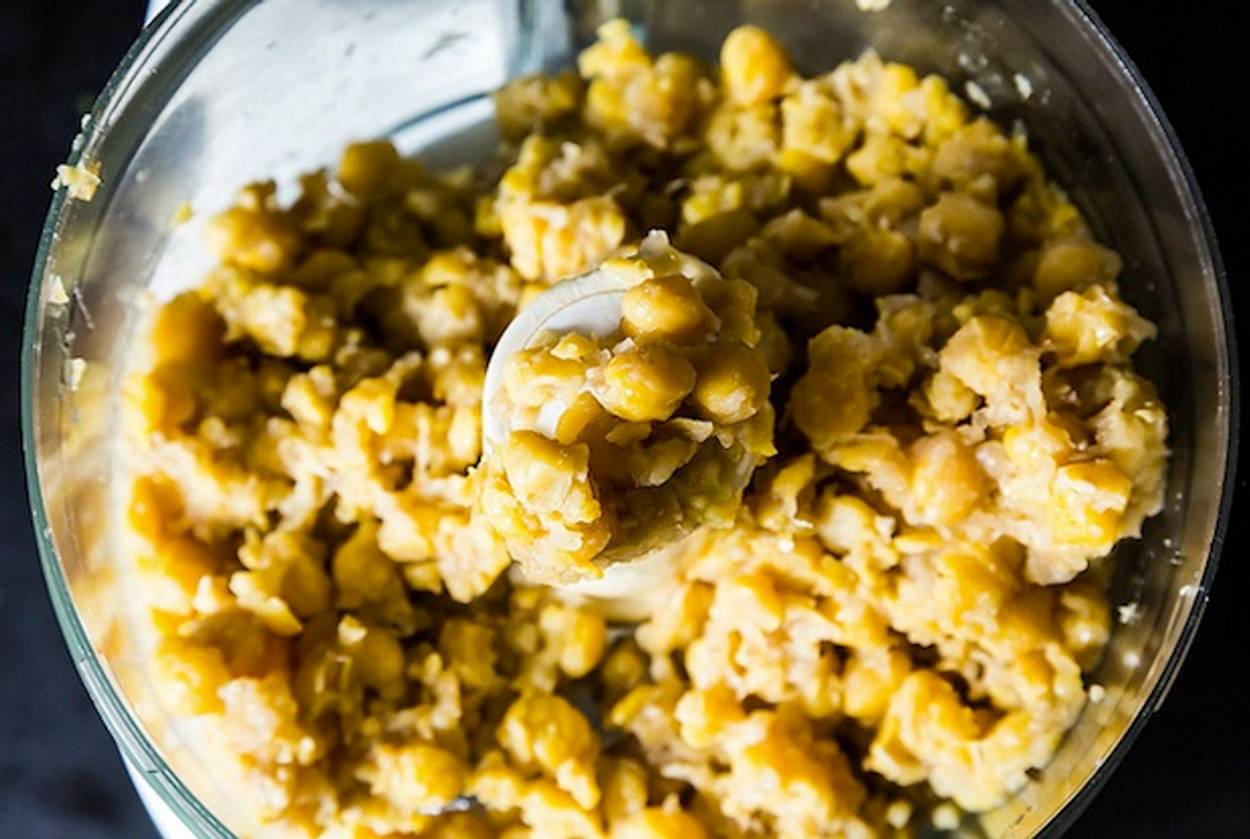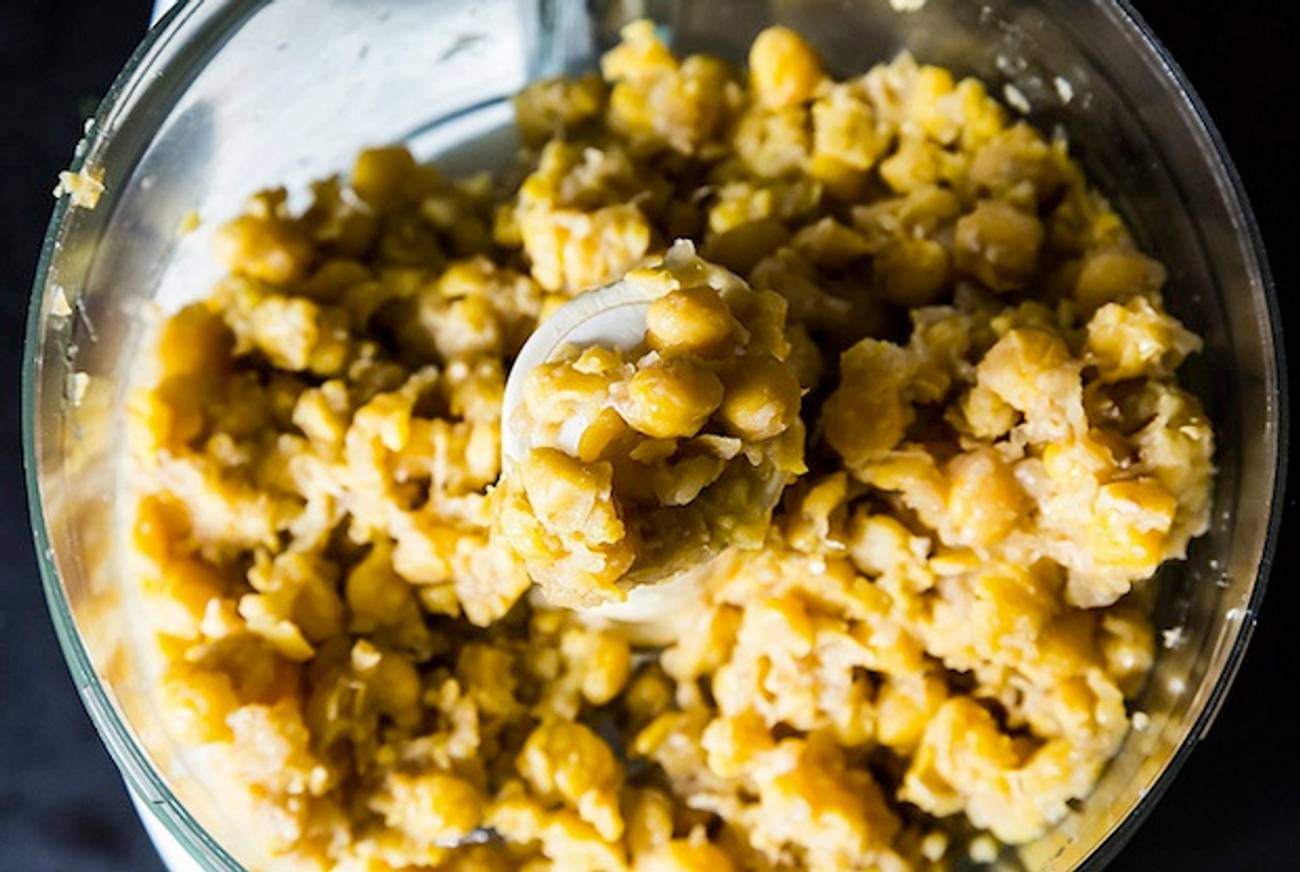Can the ‘Jerusalem’ Cookbook Bring About Peace?
From the looks of it, yes




Back in October, Carol Ungar profiled Yotam Ottolenghi and Sami Tamimi, two men who grew up in different halves of Jerusalem, met in London, and eventually co-authored Jerusalem: A Cookbook, a book that has become something of a holy text for kohanim of the kitchen. Ungar described their chance encounter thusly:
The 1990s found Tamimi in London, cooking at Baker and Spice, a gourmet food shop run by Tel Avivi Yael Mejiya. One day, Ottolenghi came by the store looking for a job. In a 2009 Gourmet magazine interview, Ottolenghi recalled that their initial conversation took place in English and was about the horrors of English food—especially mince pie. “We couldn’t get over it,” said Ottolenghi. Realizing that they were both Israeli, they soon switched to Hebrew. Since Tamimi has no Arabic accent in Hebrew, Ottolenghi initially mistook him for a Jewish Israeli. To this day, the two still use both languages to communicate.
Let this be a lesson: The makings of any Arab-Israeli love story should immediately begin with mutual disdain for the British. Here this applies to the culinary realm, but could also apply to the historical one.
In the months following the book’s publication, a cardamom-scented fog of love descended upon the masses, making Jerusalem not only the “it” cookbook, but something of a roadmap for peace.
You think I’m overreaching? This morning I finally stumbled cautiously into a New York Times forum about the cookbook, which is still on the Times homepage after two days.
Now apparently there is no such thing as sparse, measured praise for Jerusalem: A Cookbook; its fans are actually fanatics. But as I read through the comments thread, I was bowled over by the effusiveness of the love:
“I just can’t help picking up an extra copy of this to give away any time I’m in a bookstore.”
Say what, MB from Vermont?
“I am so enamored of this cookbook that my friend, who commented above, fringefood and I started a virtual cooking group called Tasting Jerusalem to cook our way through the book and collectively learn about Middle Eastern cuisine and its unique ingredients and flavor profiles.”
You and your friend did what, user OMG Yummy! from NorCal?
When Mena from Hong Kong declared it to be “One of my two favourite cookbooks of all time,” two readers demanded to know what the other book was. Was there an acrostic buried somewhere in the Shulchan Aruch that spat out a mind-melding recipe for basil shakshuka?
This had to be the first time any article in the Times containing the word Jerusalem didn’t devolve into a spat about..well…Jerusalem, the origins of food, the authenticity and ownership of recipes and culture, the birthright of which Son of Abraham, and so forth. All was uniformally positive until commenter Deekay from Canada threw this curveball into the mix.
“Agree that it’s a terrific book with many wonderful recipes. But I wasn’t crazy about the fattoush recipe because of the soggy buttermilk infused pita.”
HAVAL! Was there, at last, discontent in the ranks? A mutiny awaiting? Was this the unraveling? No. Deekay, who had self-corrected, was just curious:
Re-reading the intro, this is the recipe I’d most like the authors to talk about, as the fattoush seems very untraditional; when I modified it by frying the bread first and then adding it at the very end, it was much better!
What sweet relief! And with a solution to a problem! Perhaps it’s possible that in the quest for whirled peas, hummus is the answer.
Adam Chandler was previously a staff writer at Tablet. His work has appeared in the New York Times, the Wall Street Journal, the Atlantic, Slate, Esquire, New York, and elsewhere. He tweets @allmychandler.